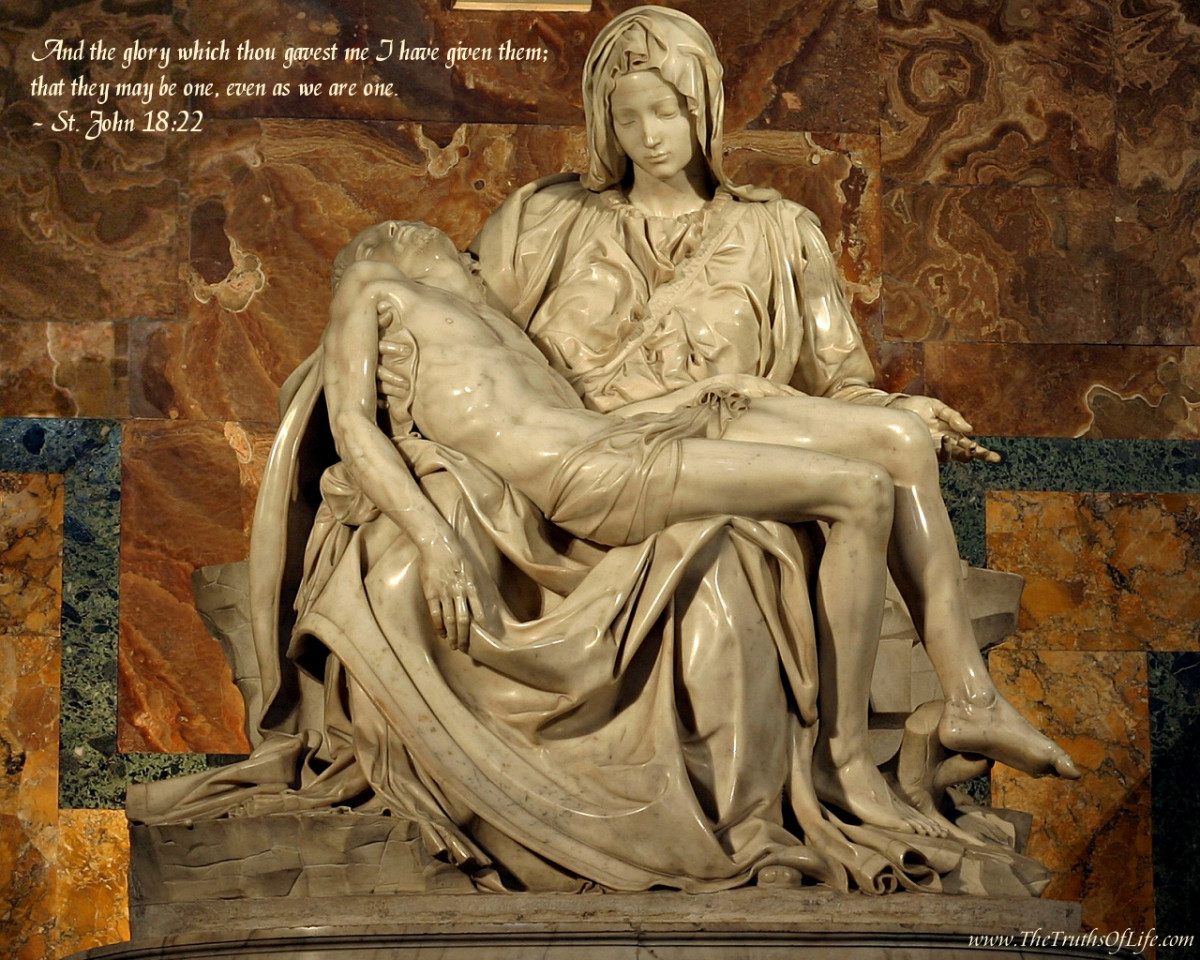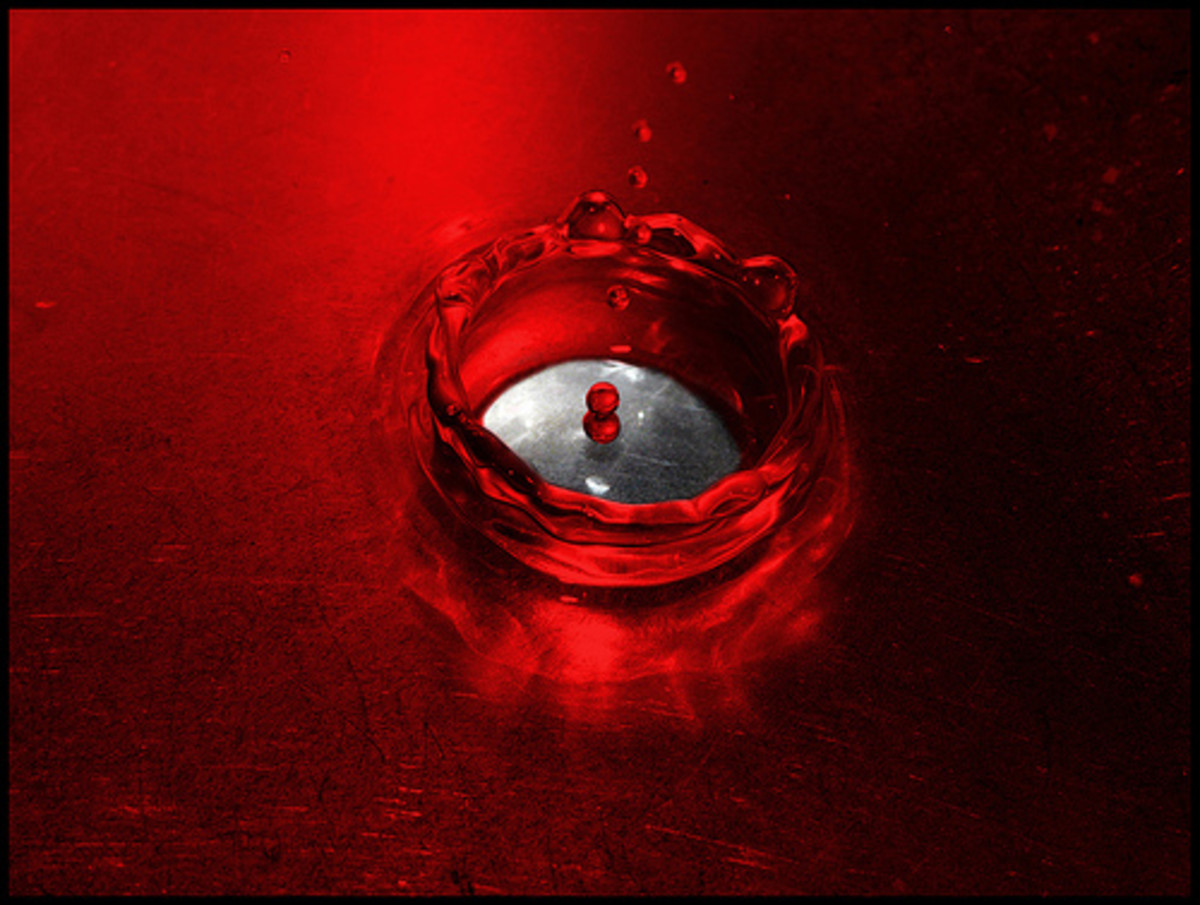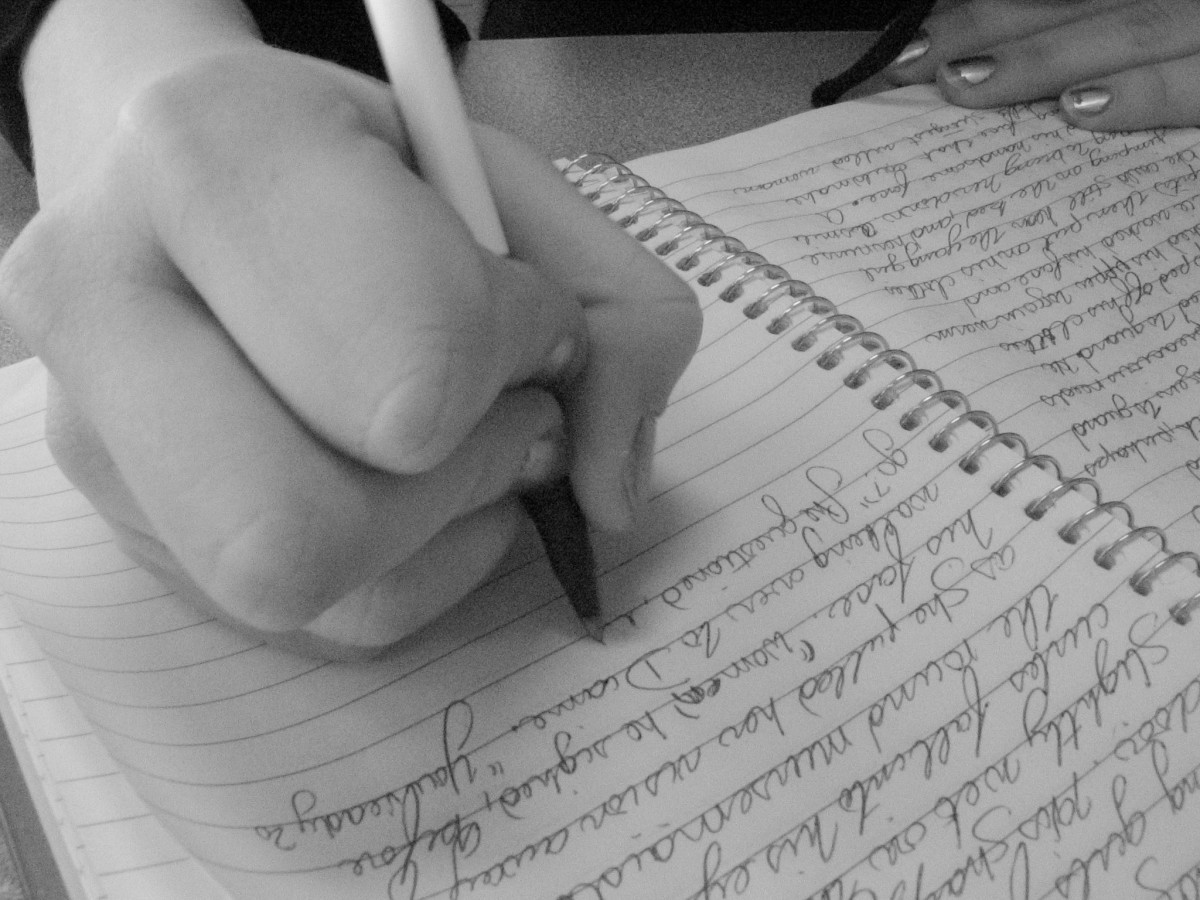The Power of the Blood of Jesus


Every Sunday we gather around the Lord's Table to take part in the bread
and in the cup. These are the emblems of the Lord's death, and the
bread speaks of His body broken for us and the cup points to His shed
blood. We are to proclaim the death of the Lord Jesus Christ on Calvary,
which has won us the victory over sin, Satan, death and hell.
Today's meditation is on the Blood of Jesus. While there are many aspects relating to the Blood of Jesus, we are focusing now only on four great facts about the Blood. Yes, there is power in the blood of Jesus! There is wonder-working power in the Blood of the Lamb!
i.
Rev 12:11. It is written, 'They overcame Satan by (or because of)
the Blood of the Lamb. There is power and victory in the precious Blood
of Jesus. When the Blood was shed on Calvary, our Lord cried out
victoriously, 'It is finished!'. The work of eternal redemption from sin, Satan and death was finished through the shedding of the precious Blood on the Cross of Calvary. 1 John 3:8 says that the Son of God came to destroy the works of the devil, and the works of the devil in man were destroyed on Calvary.
Colossians 2:15 says that the Lord Jesus Christ 'spoiled principalities and powers, and made a show of them openly, triumphing over them through His cross'. Jesus totally despoiled or stripped Satan and all his powers. Satan is now naked and powerless. The picture is that of the triumph of a Roman general. When a Roman general had won a really notable victory, he was allowed to march his victorious armies through the streets of Rome and behind him in chains followed the kings and rulers he had vanquished. They were openly branded as his spoils. Paul thinks of Jesus as a conqueror enjoying a cosmic triumph, and in his triumphal procession are the powers of evil, beaten forever, for everyone to see.
Satan and his forces are forever on display as a conquered foe. Our Lord "exposed them,
shattered, empty, and defeated, in his final glorious triumphant act!" (Phillips). Satan fears the Blood more that
anything else. It is the Blood shed on Calvary that won the victory over
sin, Satan and the grave.
ii. 1 John 1:7. There is continual
cleansing through the Blood of Jesus. The Blood of Jesus Christ His Son
cleanses us from every sin - every kind of sin, whether great or small.
The Blood works actively in this regard, like an ever-flowing fountain.
On Calvary, God opened up the fountain that cleanses away sin and
unrighteousness, Zech 13:1. It is a wellspring of water that is always fresh, abundant, easily
accessible and continually flowing in this age of grace. Let us remember, ALL our sins are washed away by the Blood of Jesus. How wonderful it is to experience that cleansing, when we humble ourselves and come to the foot of the Cross, confessing our sins and failures.
Cleansing is from the defilement and pollution of sin. Andrew Murray says, "Observe a spring in the midst of a patch of grass. From the much-travelled road that runs by that patch, dust is constantly falling over the grass that grows by the side of the road, but where the water from the spring falls in refreshing and cleansing spray, there is no sign of dust, everything is green and fresh. So the precious blood of Christ carries on its blessed work without ceasing in the soul of the believer, who by faith appropriates it." In the Bible we see cleansing by water; by blood; by fire; all typical of the cleansing under the New Covenant - an inner cleansing and deliverance from the stain of sin.
Pardon from the guilt of sin is different from cleansing from the defilement of sin. Pardon relates to our justification; whereas cleansing relates to our sanctification. Pardon or forgiveness relates to our broken relationship with God being restored, whereas cleansing is with reference to our daily and continual fellowship with God. The relationship cannot be broken, but fellowship can be hindered. You might say pardon is a judicial act, whereas cleansing is a priestly function.
iii. Exod
12:22, 23. The blood of the Passover Lamb was applied to the doorposts
and lintels of the houses of the Israelites in Egypt. The blood resisted
the Angel of death, resisted death. It was a powerful protection for
the Israelite families that came 'under the Blood'. The Angel of the Lord, when destroying the first-born of the Egyptians,
would pass over the houses marked by the blood of the lamb: hence the
name "Passover". The blood of Christ is the believer's protection from the wrath of God, the curse of the law, and the damnation of hell. (Matthew Henry).
The safety and deliverance of the Israelites in Egypt was not a reward of their own
righteousness, but purely the gift of mercy. Through the ordinance of the Passover Lamb,they were taught that protection and deliverance came to them
through the shedding and sprinkling of blood. The lamb slain points to Calvary, the blood applied to the doorposts and lintel of the door of the house points to our appropriation by faith of the merits of our Lord's sacrifice on Calvary's Cross. Christ is our Passover Lamb, 1 Cor 5:7.
iv. Exod
24:6,8; Heb 9:19-21. Here we see the sprinkling of the precious Blood,
upon the altar (Exod 24:6) and upon all the people (Exod 24:8). Again we
see this explained clearly in Heb 9:19-21, where the blood is sprinkled
upon the book of the law, and upon all the people, and upon the
tabernacle and all its furniture and furnishings. There is a cleansing
or purging by the precious Blood (Heb 9:22), and that cleansing brings
life.
It is the power of an incorruptible and indestructible
life. Peter in 1 Pet 1:19 speaks of being redeemed by the precious blood
of Christ, 'as of a lamb without spot or blemish'. The blood not only
points to an incorruptible life, but also it points to anincorruptible
and holy nature. Hence Christ could declare in John 14:30: 'The prince
of this world comes, but he has nothing in me.' There is no foothold in
Christ, no infirmity of sin, no spot or blemish, for Satan to lay hold
of. Our Lord is the perfect, spotless, blameless, pure and holy,
incorruptible (and hence indestructible) Lamb of God.
© Roland N Oliver/Pratonix








